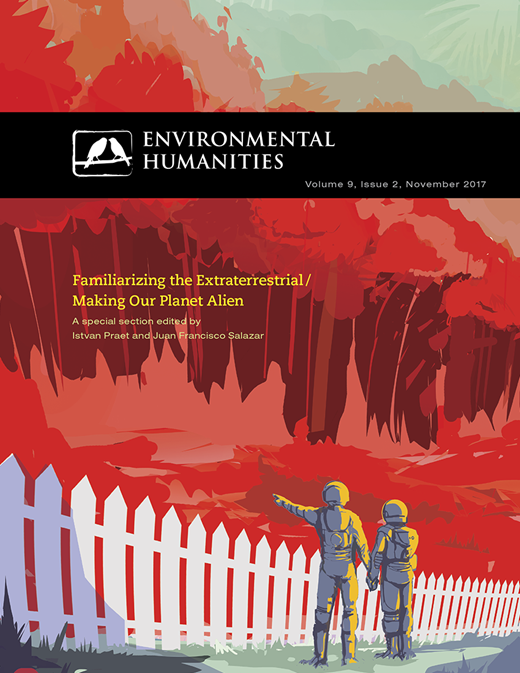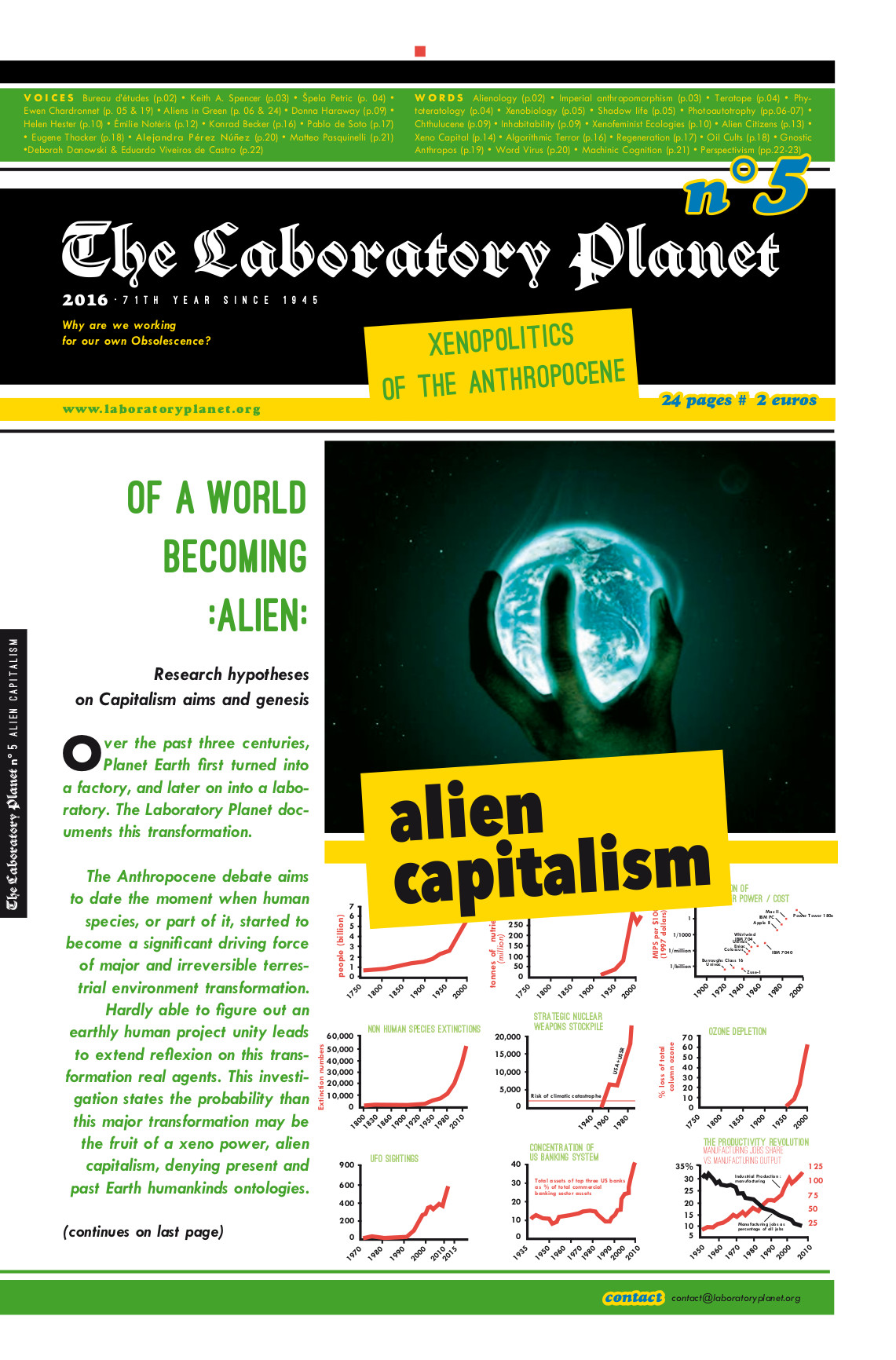Environmental Humanities, 9(2): Familiarizing the Extraterrestrial / Making Our Planet Alien (2017)
Filed under journal | Tags: · alien, astronomy, cosmos, earth, extraterrestrial, imagination, life, science, space

“A growing number of researchers in the social sciences and the environmental humanities have begun to focus on the wider universe and how it is apprehended by modern cosmology. Today the extraterrestrial has become part of the remit of anthropologists, philosophers, historians, geographers, scholars in science and technology studies, and artistic researchers, among others. And there is an emerging consensus that astronomers and other natural scientists—contrary to a common prejudice—are never simply depicting or describing the cosmos “just as it is.” Their research is always characterized by a specific aesthetic style and by a particular “cosmic imagination,” as some have called it. Scientific knowledge of the universe is based on skilled judgments rather than on direct, unmediated perception. It is science, but it is also an art. This special section focuses on two at first sight contradictory aspects of this cosmic imagination. On the one hand, there is a distinctive move toward viewing the extraterrestrial in familiar terms and comprehending it by means of conceptual frameworks that we, earthlings, are accustomed to. On the other hand, there is a tendency to understand our own planet in unfamiliar terms, especially in astrobiology, where so-called analog sites and “extreme environments” provide clues about alien planets.”
Special section edited by Istvan Praet and Juan Francisco Salazar
Publisher Duke University Press, November 2017
Creative Commons BY-NC-ND 3.0 License
ISSN 2201‐1919
pages 300-455
The Laboratory Planet, 5: Alien Capitalism: Xenopolitics of the Anthropocene (2016) [EN, FR, ES]
Filed under book | Tags: · alien, anthropocene, art, capitalism, chthulucene, earth

“Since World War, the planet is gradually transformed into a scale 1 laboratory. The old model of “world factory” has given way to the model of the “world laboratory”. Objects of this laboratory, can we also be the subjects? Can we reclaim this huge machine that became autonomous and is now developing according to its own dynamic? Can we redirect the fate and direction of this laboratory?”
Texts by Bureau d’études, Keith A. Spencer, Spela Petric, Ewen Chardronnet, Aliens in Green, Donna Haraway, Helen Hester, Émilie Notéris, Konrad Becker, Pablo de Soto, Eugene Thacker, Alejandra Pérez Núñez, Matteo Pasquinelli, Deborah Danowski & Eduardo Viveiros de Castro.
Edited by Ewen Chardronnet and Bureau d’études
Published on 4 February 2016
24 pages
PDF, PDF (French)
PDF, PDF (English)
PDF, previous issues.
Lisa Blackman: Loving the Alien: A Post-Post-Human Manifesto (2016)
Filed under booklet | Tags: · alien, body, human, manifesto, politics, posthumanism, subjectivation, subjectivity

This essay explores the ambivalent position of the alien in order to reflect upon the question of whether there is a place for a non-body politic. Lisa Blackman brings together a number of different debates from “new biologies” to “alien phenomenologies” that provide some ways of framing a possible non-body politics founded on radical relationality, contingency and “inhuman formation” that might go some small way to recognising what might be at stake.
Publisher Fall Semester, Miami, 2016
Open access
22 pages
via Fall Semester
PDF, PDF
Later version, published in Subjectivity, Apr 2017: HTML, PDF

